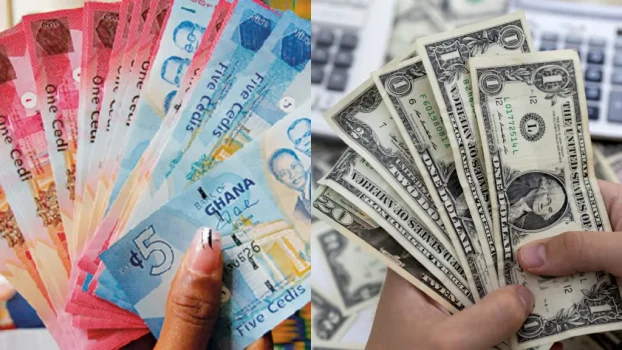To support the appreciation of the Ghanaian Cedi against the US dollar, the Government of Ghana could consider a multi-faceted approach focused on strengthening the economy, boosting investor confidence, and reducing dependency on foreign currency. Here are some strategic initiatives that could help:
1. Increase Exports and Diversify Export Base
- Promote Non-Traditional Exports: Encourage the production and export of non-traditional products like processed foods, textiles, and crafts. Expanding into new markets could reduce reliance on traditional exports like gold and cocoa, making the Cedi more resilient to global commodity price fluctuations.
- Industrialization and Value Addition: Strengthen policies that support local manufacturing and processing industries, so raw materials (like cocoa and gold) are exported as finished goods, which can significantly increase export revenue.
2. Strengthen Foreign Exchange Reserves
- Reduce Import Dependency: Encourage the production of goods locally to reduce reliance on imported products. This could include promoting local agriculture and manufacturing to substitute imports with Ghanaian products.
- Encourage Savings and Investment in Local Currency: Promote savings and investments in Cedis rather than dollars by offering attractive interest rates or other financial products. This could discourage dollarization and reduce demand for the US dollar in domestic transactions.
3. Attract Foreign Direct Investment (FDI) and Increase Tourism
- Streamline Processes for Foreign Investors: Simplify regulatory processes to make Ghana a more attractive destination for foreign direct investment, focusing on sectors with high value-add, like technology, healthcare, and manufacturing.
- Promote Ghana as a Tourism Destination: Position Ghana as a top destination in Africa by improving infrastructure, providing incentives for tourism businesses, and enhancing marketing campaigns. Increased tourism revenue can bring in more foreign exchange.
4. Enhance Monetary Policy and Financial Stability
- Manage Inflation: Keeping inflation low and stable helps maintain the purchasing power of the Cedi. The Bank of Ghana can pursue policies to control inflation, including adjusting interest rates, managing money supply, and implementing robust fiscal policies.
- Intervene Strategically in Forex Markets: The Bank of Ghana can manage volatility by strategically intervening in the foreign exchange markets, though this should be done sparingly to avoid depletion of reserves.
5. Promote Remittances and Diaspora Investments
- Encourage Ghanaians Abroad to Invest in Ghana: Create investment opportunities like diaspora bonds or special savings accounts that allow Ghanaians abroad to invest in local businesses or projects.
- Reduce Transaction Fees on Remittances: Work with financial institutions to lower remittance fees, making it more attractive for Ghanaians abroad to send money back home through official channels, thus increasing forex inflows.
6. Improve Governance and Economic Policy Framework
- Reduce Corruption and Improve Transparency: A stable and transparent government increases investor confidence. Enhanced transparency and good governance in fiscal policy and project execution could make Ghana a more attractive destination for investment.
- Implement Long-Term Fiscal Discipline: Reducing the budget deficit and managing public debt responsibly are crucial for stabilizing the currency. The government should avoid excessive borrowing, especially in foreign currency, to reduce debt servicing pressures on the Cedi.
7. Build Strategic Trade Relationships and Partnerships
- Strengthen Regional Trade: Leverage Ghana’s role in the African Continental Free Trade Area (AfCFTA) to increase trade with neighboring countries and reduce dependence on imports from outside the region.
- Negotiate Favorable Trade Agreements: Establish trade agreements that can reduce import tariffs on essential raw materials while promoting exports of Ghanaian goods.
8. Invest in Renewable Energy and Reduce Oil Imports
- Promote Renewable Energy Investments: Investing in renewable energy, such as solar and wind, can help reduce Ghana’s reliance on imported oil and gas, which are usually priced in dollars. Developing local energy resources could reduce dollar outflows.
- Encourage Energy Efficiency: Implement policies to reduce energy waste and incentivize businesses and consumers to use energy-efficient products, which could decrease the demand for energy imports.
Combining these initiatives with ongoing monitoring and adjustments to economic policies could stabilize and strengthen the Cedi over time, creating a more robust economy less vulnerable to foreign currency fluctuations.







